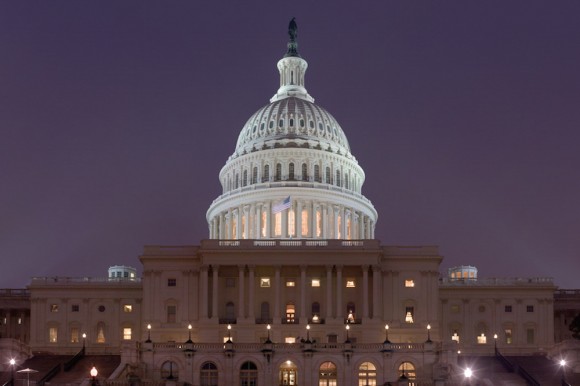Opinions do not necessarily reflect CUIndependent.com or any of its sponsors.
It finally happened, folks: the Republican party has taken control of both houses of the U.S. legislature for the first time since 2006. Depending on your politics, last week’s midterm elections either signaled that victory has come, or that the end of days is nigh. Republicans were expected to make gains in both the Senate and the House, but the results actually saw the GOP doing better than expected, picking up 12 House seats, seven Senate seats and three governorships around the nation.
Backlash against President Obama certainly gave the conservative cause more fuel — his approval rating has dipped as low as 39 percent in the last week — but as voters and citizens, we need to take a step back and ask ourselves: Is voting purely based on opposition really going to improve our country?
Looking back, the 2014 results actually aren’t a huge surprise.
A look at midterm election results since the 1930s will tell you that the president’s party almost never gains legislative seats during midterms — and even when they do, the gain is minuscule. Voters have a tendency to go against what they perceive to be the problem in government. If things aren’t getting done (and in America, they usually aren’t), we blame the president and those who agree with him. This trend holds especially true when a president is in his second term. Midterm elections during a president’s second term since the 1930s have always resulted in double-digit losses for his party in the House.
Obama’s second term midterms are no different. The tendency of the American electorate to jump ship after six years of one president — 5.8 unemployment rate be damned— plays into the hands of a Republican comeback today.
But is this a smart way to vote?
No matter how many times Obama touted “CHANGE” as the end-all be-all message in politics, voting for lawmakers purely based on the fact that, well, they aren’t the current lawmakers is both shortsighted and extremely dangerous. When a football team is struggling and wants to trade for better players, they don’t start trading for players just because they’re new — they survey their options, and if there aren’t any better players to be traded for in that situation, then they don’t trade.
The American electorate doesn’t always understand this concept. Despite the fact that 61 percent of voters surveyed said that they’re dissatisfied with the Republican leadership in Congress, the country as a whole for some reason wanted more Republicans in government. And this might imply that even though the country dislikes the job congressional Republicans have done, they blame Obama and the Democrats even more for the stagnant state of our country on a variety of issues — or perhaps not enough loyal Democrats voted in the election to have an impact. Voters chose new faces, but new doesn’t automatically mean good.
Either way, we need to remember what the parties stand for.
Voters seem to have forgotten that change or no change, the Republicans are still the Republicans. On issues like abortion, reproductive health, taxation and immigration, Republicans have proven time and time again that unless you’re a relatively affluent white male, they aren’t going to represent your interests. This is the same party that put Todd Akin in Congress, the man who made the ever-so-eloquent distinction about “legitimate rape”. It’s the same party who brought abortion-banning “personhood” bills to the House floor, who also wants to lower taxes on the rich even though they’ve been sharply declining for decades. And the same party who has spouted anti-Latino vitriol for years, while at the same time wondering why they just can’t seem to nail the Latino vote.
If more Republicans in Congress still seems like a good idea to you, let us turn to more objective issues. The Obama-Democrat-backed stimulus, which saved the nation from an even bigger economic downturn fueled by two terms of Bush policies, would have never passed if we had the Republican majority we do today. Maybe you’re a fan of the constant obstructionism, the Tea Party-induced government shutdown of 2013 or the six times that Republicans have wasted time trying to repeal Obamacare — and the 40 other times they’ve tried to hinder it otherwise. If you enjoyed the Iraq war, the failure of FEMA after Hurricane Katrina and even the recent blockage of bills that aimed to reduce student loan debt, you’ve got your party.
But the Democrats aren’t perfect.
Obama’s commitment to clean energy has been shaky, and the Democrats still haven’t exactly come up with the magic bullet to get the economy to a fully healthy level. No party is perfect, but throwing the Democrats out just because America still isn’t all apple pie and backyard barbecues with fully-employed neighbors is simply irresponsible. In 2006, America took the Republican majority out of Congress because it realized that Bush and the Republicans were taking the country down the wrong road. Eight years later, we’ve apparently forgotten why we made that decision in the first place.
In the next midterm election (and the next election, period), don’t just vote for “change.” Don’t just vote for the new face. Vote for who is going to represent your interests. And if you’re a wealthy venture capitalist, I can’t blame you for voting for the party of people like Mitt Romney. He’s got your back. But I suspect that most of us are not, in fact, rich financial tycoons, and for that reason, we need to look a little closer at who we’re putting in our government.
Contact CU Independent Assistant Opinion Editor Ellis Arnold at ellis.arnold@colorado.edu.

